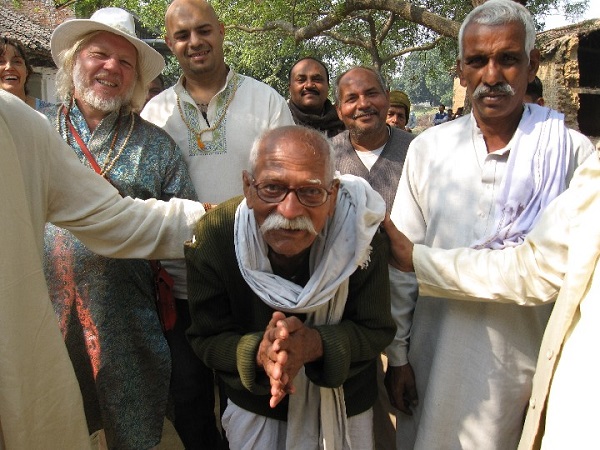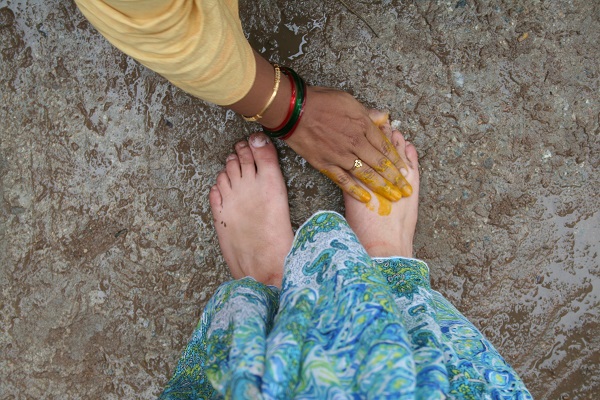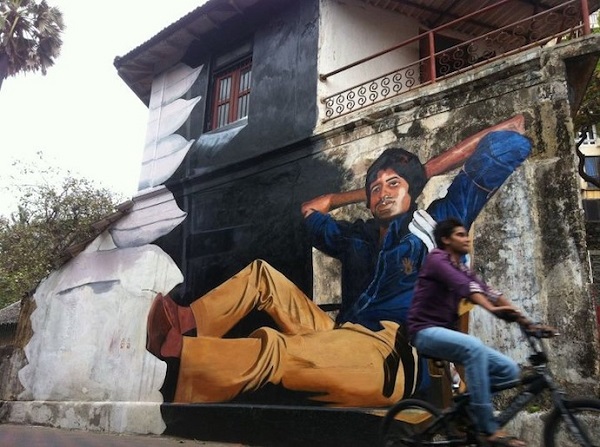Why do we call our elders ‘uncle’ or ‘aunty’? What is behind this habit of addressing unknown elders with respect?
 by Shweyta Mudgal
by Shweyta Mudgal
Over the phone earlier this week, Mom announced “Uncle and aunty came home for dinner last night.” To my response – “Which uncle and aunty?” she clarified with their first names, which is when I knew. Not just who came to dinner, but what my column this week would be about – the Asian obsession with christening everyone ‘Uncle’ or ‘Aunty’!
Being part of a nuclear family in Mumbai with all our kin living in other cities ensured that most of the relationships my parents and I made were non-familial. Add to these, the other hundred-odd ‘aunties’ and ‘uncles’ that I accumulated in the colony, just by virtue of having spent a childhood there!
So when it came to referring to any of these – the rude middle-aged man who sold me school stationary every year; the annoying building resident who quizzed me on my life each time our paths crossed; the old tailor to whom I’d accompany Mom as a child, but later abandoned because of his judgmental issues over my ‘plunging neckline’ requests or Dad’s endearingly nice colleague – the term ‘Uncle’ was used uniformly for all of them, no questions asked! Whether or not they were ‘Uncle-worthy’ in commanding my respect (the first three certainly weren’t), they still had to be called ‘Uncle’.
Similarly, Mom’s best friend, female colleagues, the neighbourhood gossipmonger or the saleswoman in the saree store were all ‘aunties’ – a term now universally applied to every middle-aged woman across Asia.
The entire Asian continent believes that first names are not enough to refer to strangers by. Here, family names are employed to refer to people from a certain gender and age group. 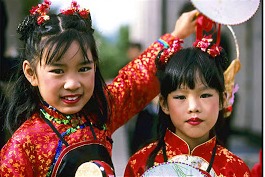 Someone roughly your age is either your younger or elder brother or sister, while people that are roughly your parents’ age are your Aunt or Uncle. Anyone older is a Grandparent.
Someone roughly your age is either your younger or elder brother or sister, while people that are roughly your parents’ age are your Aunt or Uncle. Anyone older is a Grandparent.
Family terms in Korean are the most complex. ‘Emo’ and ‘Gomo’ are the ‘Maasi’ and ‘Bua’ equivalents in Korean, both meaning ‘Aunt’, but depending on which parent’s sister one is talking about. Yet, ‘Emo’ is also used to refer to one’s mother’s close female friend or an older female server at a restaurant.
In China, children are taught to give each other a ‘title’ as well. ‘Ge ge’ and ‘di di’ mean older and younger brother while ‘jie jie’ and ‘mei mei’ mean older and younger sister, reminiscent of the Hindi ‘Bhaiya’ and ‘Didi’ reference made in India.
In Japan, societal mores are highly defined on the parameters of social address. First-name basis relationships exist only between good friends and those that are comfortable in each other’s company. Everyone else is referred with a ‘- San’ or ‘- Chan’ appended to their last names, with the latter being used strictly only for close friends, children or youth under the age of 20.
Filipinos are very family-oriented too, referring to older men or women as ‘Kuya’ or ‘Aate’ (Brother or Sister) or ‘Tito’ or ‘Tita’ (Uncle or Aunt) while anyone aged is referred to as ‘Lolo’ and ‘Lola’ (Grandpa and Granny).
With Asian immigration, some of this title practice has reached the US, too. In Hawaii, for instance, it is normal to call anyone ‘Anake’ or ‘Anakala’ (Aunt or Uncle) or ‘Tutu’ or ‘Tutu Kane’ (Grandma or Grandpa) even if they are strangers. And in heavily-populated Asian communities within the US, ‘Uncle’ and ‘Aunty’ terms still abound, practiced by first-generation Indian-American children, much to the surprise of their other classmates, who must wonder how large an average Indian family is, for a child to have so many Aunties and Uncles.
Most of North America is more or less on a first-name basis with each other – be it your 70-year-old boss, your salt-and-pepper haired landlord, your elderly next door neighbour, the dean of your graduate school and even your mother or father-in-law. Simply put, if you’re not family, you’re not Aunty or Uncle here!
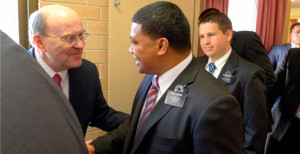 This Western practice of calling someone by their first name irrespective of their age has often been acclaimed on account of it’s ‘equalising’ temperament. Here, unlike in the East, old age or experience does not warrant new social callouts and ‘respect’ is not calibrated as per how one addresses another. An American in general is not a relative of a stranger and hence unknown to the ‘younger than me, older than me’ game that Asians love to play on a daily basis with everyone they interact.
This Western practice of calling someone by their first name irrespective of their age has often been acclaimed on account of it’s ‘equalising’ temperament. Here, unlike in the East, old age or experience does not warrant new social callouts and ‘respect’ is not calibrated as per how one addresses another. An American in general is not a relative of a stranger and hence unknown to the ‘younger than me, older than me’ game that Asians love to play on a daily basis with everyone they interact.
Yet, my theory is that it is the sharp Asians that have this one all figured out! With their ever-increasing population and common aspirations to look perfectly alike, telling people apart from each other is becoming an increasingly arduous task. Adding to that confusion are their alliterative names. In such a scenario, all-encompassing terms such as ‘Aunty’ or ‘Uncle’ come to the rescue; not just by being contextually appropriate but if you’re like me, by being your saving grace – when you can’t tell one person from the other or worse still, have forgotten someone’s name!
A Mumbaikar by birth and a New Yorker by choice, recently-turned global nomad Shweyta Mudgal is currently based out of Singapore. An airport designer by day, she moonlights as a writer. ‘Outside In’ is a weekly series of expat diaries, reflecting her perspective of life and travel, from the outside-in. She blogs at www.shweyta.blogspot.com and hopes she hasn’t upset the countless ‘Aunties’ and ‘Uncles’ reading this!
(Pictures courtesy articles.mercola.com, www.lds.org, marlameanslit349.blogspot.com)

